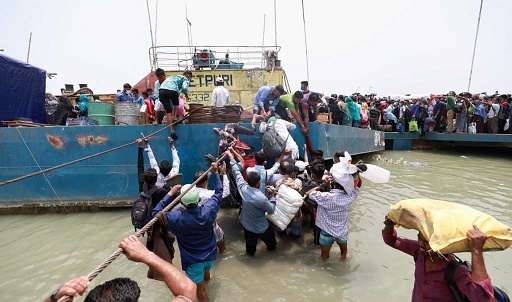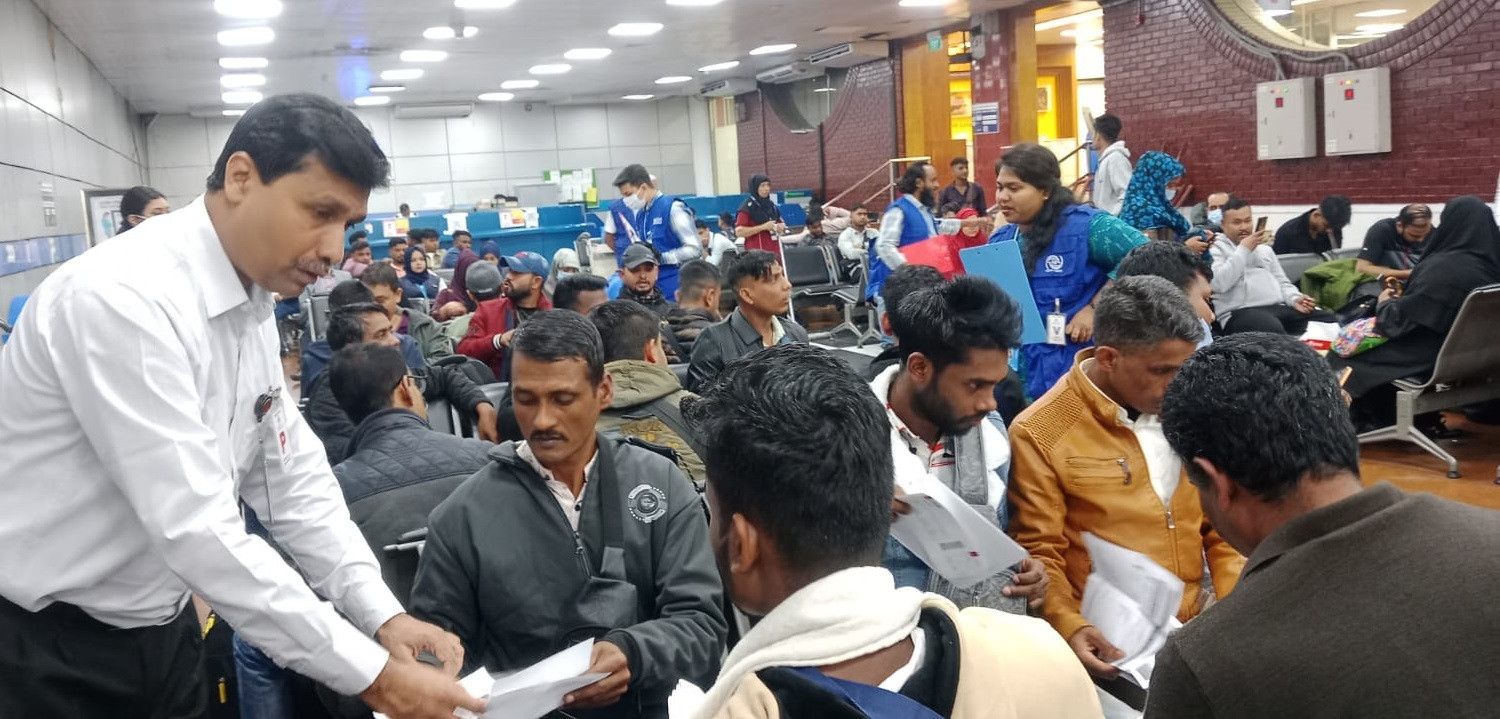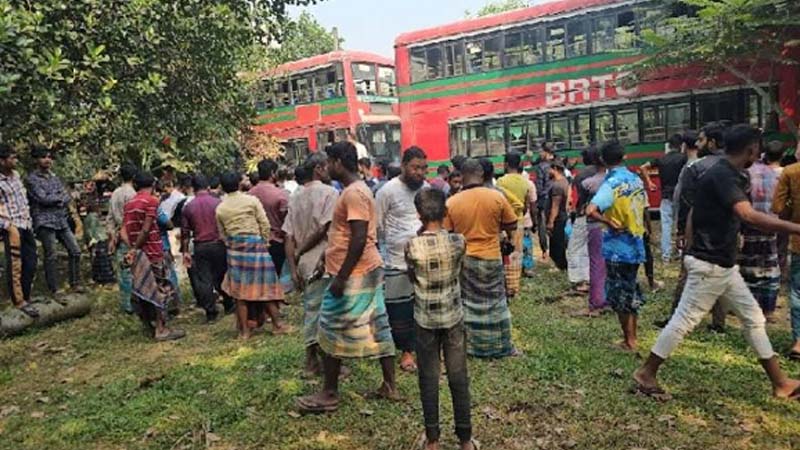The unprecedented spike in Covid-19 cases and deaths in the country since the homebound rush from Dhaka ahead of the Eid-ul-Fitr vacation earlier this year should serve as a grim warning of the consequences if health guidelines are not properly enforced ahead of the upcoming Eid-ul-Azha.
The government had suspended public transport and urged people not to travel ahead of Eid-ul-Fitr, as gathering crowds at transport stations would facilitate the spread of Covid-19 across the country.
However, the instructions were not heeded by the public, and they still left Dhaka for their village homes in droves. Many people forced themselves onto ferries transporting medical equipment, while others left on foot, among other means.
About two weeks after the Eid-ul-Fitr exodus, which began on May 13, Covid-19 cases and deaths began to rise dramatically in multiple districts of the country.
This time around, the government has left public transports open in a limited capacity and relaxed restrictions from July 15 until after Eid-ul-Azha on July 21, in the hope that there will be less pressure of crowds at stations and terminals if the people have more time to leave the capital in phases. Cattle markets will be open during this period.
The National Technical Advisory Committee (NTAC) on Covid-19 and public health experts have criticized the decision to relax restrictions as “a mistake.”
They fear that breaches of health rules similar to Eid-ul-Fitr will have greater consequences after Eid-ul-Azha, as there are many more Covid-19 hotspots in the country now than in May.
What are the experts saying?
The NTAC in a meeting on Monday recommended extending the ongoing “strict lockdown” for several more days, but the government took the decision to relax the ongoing restrictions before reimposing them after Eid.
While speaking to FP on Tuesday, NTAC member Iqbal Arslan said: “The fact is that we do not seem to have learned any lessons from Eid-ul-Fitr. We did not recommend that the government relax the ongoing restrictions, but the government has decided to do so for the betterment of the country’s economic condition, probably.
The NTAC had suggested launching a digital cattle market, because the Covid-19 scenario is more dangerous and serious now in comparison to Eid-ul-Fitr.
“During the last Eid, only some big districts like Dhaka, Chittagong, Naryanganj, and Gazipur had a high number of infections. However, every district of the country is facing a surge in infections this time. The infection rate may spike even more dramatically this time,” he added.
Dr Mustafa Jalal Mohiuddin, another member of NTAC, also expressed fears over the relaxed restrictions amid surging infections.
He said: “Due to crowds at the cattle markets, the infection rate will be higher during this Eid. We have suggested extending the lockdown, but I think the government has taken this decision in the interest of the livelihoods of cattle traders and to help the economy.”
What are the authorities saying?
On condition of anonymity, a high official of the Cabinet division told Dhaka Tribune: “The decision to relax restrictions was taken to ease the sufferings of the people. You saw how people left the capital by any means during Eid-ul-Fitr.
“The homebound people never listen to anyone. We think it will be easier to enforce health guidelines and safer for the people if they use official transports rather than illegal means,” he added.
The official further said the people now had to choose whether to stay at their places of work or to return to their village homes, as they would have to stay wherever they are for 14 days after Eid.
What measures should be taken?
Tarek Hussain, public health expert at Asian Development Bank (ADB), told Dhaka Tribune coordination and monitoring were the keys to preventing a surge in Covid-19 after Eid-ul-Azha.
“If we cannot implement the control strategy and health safety rules, the number of Covid-19 patients will exceed the capacity of the health system,” he said, stressing the need to shore-up oxygen supply to hospitals.
The health expert suggested that the government start taking strict action against health rule violators, even though the move might not be popular.
“Inter-district transport connectivity has to be discouraged and entry into Dhaka should be monitored. Local public representatives and the local administration can be fully involved and monitor the situation. Regional authorities have the expertise to impose and manage measures such as local lockdowns,” he added.










